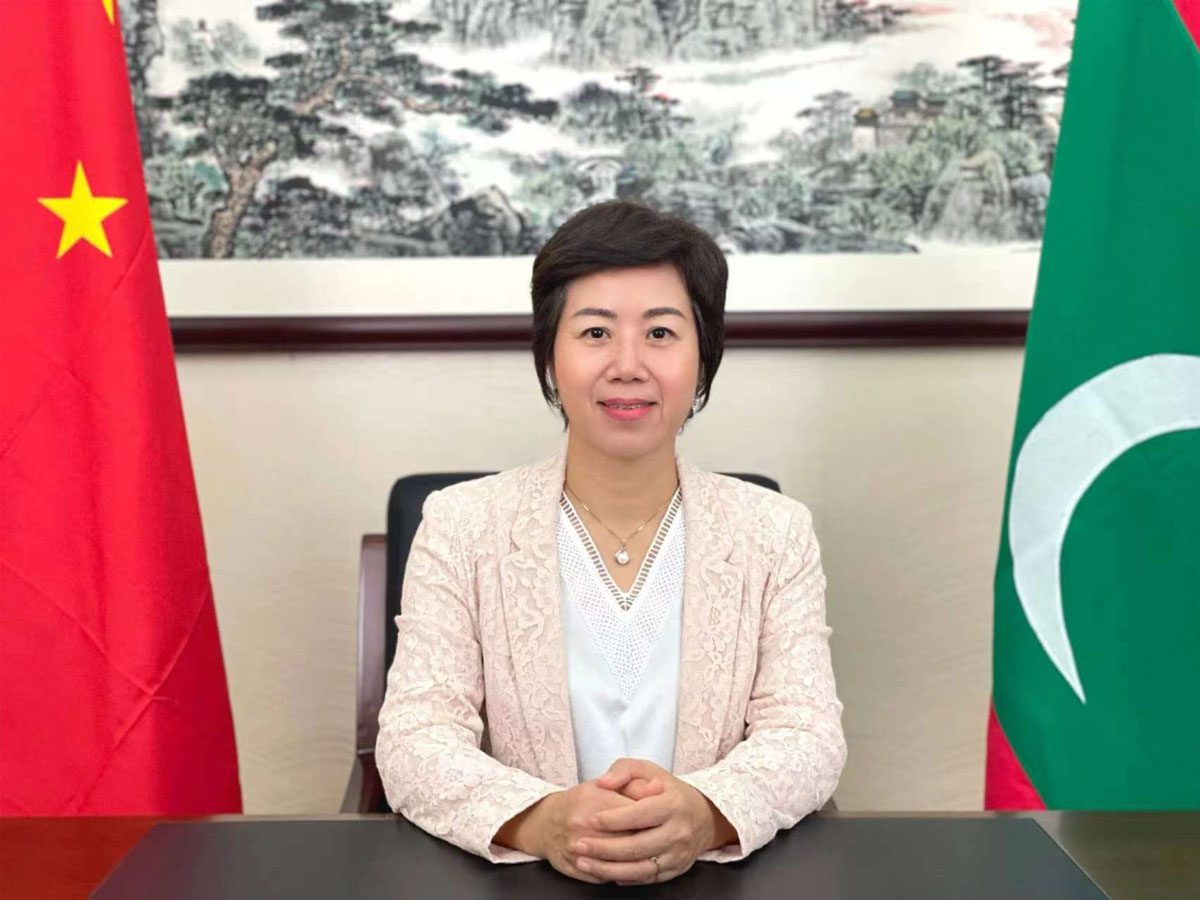This year marks the 73rd anniversary of the founding of the People’s Republic of China. Over the past 73 years, earthshaking changes have taken place in China.
Since the 18th CPC National Congress in 2012, the Central Committee of the Communist Party of China with Comrade Xi Jinping at its core has coordinated the overall strategy of the Great Rejuvenation of the Chinese Nation and the great change that has not happened in a century, have solved many tough problems that were long on the agenda but remained unsolved, accomplished many things of vital importance and long-term significance, and withstood the test of various risks and challenges at home and abroad. The Path of China’s development becomes wider and wider, the Governance of China becomes more and more mature, and the Theory of China becomes more and more prevailing. The Chinese people have successfully built a moderately prosperous society in all respects and fulfilled the first centenary goal. We are embarking on a new journey to fully build a modern socialist country, march toward the second centenary goal, and advance toward the grand goal of realizing the great rejuvenation of the Chinese nation.
This year is of great historical significance in the development of the CPC and China, as the 20th CPC National Congress will be convened on 16th of October. This Congress will, in response to the expectation of all the Chinese people, set well-conceived goals and tasks for China’s development in the next five years and beyond, and it will draw an overarching plan for China’s future development. Having reached a new historical starting point, China will follow the Chinese path to modernization to achieve the rejuvenation of the Chinese nation. China will work with other countries to make every effort for peace and development, shoulder the responsibility for solidarity and progress, build a community with a shared future for mankind, and embrace an even better world.
At present, the COVID-19 pandemic has kept resurfacing. Global security faces uncertainty. Global economic recovery is fragile and unsteady, and various risks and crises are emerging. The world has entered a new phase of turbulence and transformation. Changes unseen in a century are accelerating. At the same time, the world continues to move toward multi-polarity; economic globalization is deepening, and our societies are becoming increasingly digitized and culturally diversified. Indeed, countries are becoming ever more interconnected and interdependent. Peace and development remain the underlying trend of our times. Around the world, the people’s call for progress and cooperation is getting louder than ever before.
In response to the common aspiration of the international community for peace and development, and make up the global governance deficit, President Xi Jinping proposed the Global Development Initiative at the 76th session of the UN General Assembly. Putting the people at the center, this initiative is a rallying call to refocus attention of the international community on development and build a global community of development. At the recent High-level Dialogue on Global Development he chaired, President Xi Jinping announced several dozen concrete major steps to implement this initiative, generating strong impetus for accelerating the implementation of the 2030 Agenda for Sustainable Development.
President Xi Jinping proposed the Global Security Initiative at the Boao Forum for Asia Annual Conference 2022. He called on the international community to pursue common, comprehensive, cooperative and sustainable security, to respect the sovereignty and territorial integrity of all countries, to abide by the purposes and principles of the UN Charter, to take the legitimate security concerns of all countries seriously, to peacefully resolve disputes through dialogue and consultation, and to maintain security in both traditional and non-traditional domains. By putting forward this initiative, he has contributed China’s vision to reducing the peace deficit facing humanity and provided China’s input to meeting global security challenges.
As China has one-fifth of the global population, its march toward modernization has important, far-reaching significance for the world. The path that China pursues is one of peace and development, not one of plunder and colonialism; it is a path of win-win cooperation, not one of zero-sum game; and it is one of harmony between man and Nature, not one of destructive exploitation of resources. We will continue to contribute our input to meeting the challenges facing human development, and make our contribution to creating a new form of human advancement.
This year also marks the 50th anniversary of the establishment of diplomatic relations between China and the Maldives. Over the past half a century, China-Maldives relations have withstood the test of international vicissitudes and become more mature and stable. China and the Maldives have been upholding the spirit of friendship and neighborliness, treating each other as equals, conducting cooperation for development, supporting each other with mutual assistance and tiding over difficulties together. China highly appreciates the Maldives’ long-standing understanding and support for China’s just claims on issues concerning China’s core interests and major concerns, and China also supports the Maldives in safeguarding its sovereignty, independence and national dignity, and will continue to uphold justice for the Maldives at the international arena. The Maldivian government has a longstanding and firm commitment to the one-China principle. The China-Maldives relations have become a model of friendly exchanges, mutual benefit and win-win cooperation between countries with different systems and cultures in international arena.
In recent years, under the strategic guidance of the leaders of the two countries, China-Maldives relations have maintained a good momentum of steady development. In September 2014, Chinese President Xi Jinping paid a historic state visit to Maldives and the two sides agreed to establish future-oriented all-round friendly and cooperative partnership, lifting the China-Maldives relations to a new level. In July 2021, Chinese President Xi Jinping had a phone call with Maldivian President Ibrahim Solih and reached important consensus on deepening and expanding exchanges and cooperation in various fields between the two countries, setting the direction for the future development of the bilateral relations. In January 2022, Chinese State Councilor and Foreign Minister Wang Yi paid a successful visit to Maldives with fruitful outcomes, opening a new chapter in China-Maldives relations. Maldivian Foreign Minister Abdulla Shahid visited China twice over the past year, which enhanced the mutual trust and friendship between the leaders of the two countries, and laid a sound foundation for the future development of bilateral relations.
As an all-round friendly and cooperative partner, China has been always strongly supporting the Maldives to speed up economic and social development and improve self-development capability. Recent years have witnessed fruitful results on jointly building the “Belt and Road” by China and Maldives. The China-Maldives Friendship Bridge is a landmark project of the “Belt and Road” Initiative. Since it opens to traffic 4 year ago, the bridge has witnessed over 100 million crossings by the local people and has dramatically promoted the sustainable development of Maldivian economy and society. As foreign minister Abdulla Shahid said the China-Maldives Friendship Bridge built with China’s assistance had brought enormous changes to the country and greatly accelerated the economic development process of the Maldives and befitted the Maldivian people. So far Chinese companies has completed more than 11,000 social housing units, which have contributed a lot in the improvement of living conditions of thousands and thousands of Maldivian families. Power generation and power grid connection built by Chinese companies meet 80% of all electricity demand of the residents and enterprises in the Greater Malé. Expansion and Upgrading of Velana International Airport Project will further promote the development of Maldivian tourism. The great contributions made by the Chinese side to the development of Maldivian economy and society will further enhance the solid friendship between the two peoples.
Looking into the future on the occasion of the 50th anniversary of diplomatic ties, the two countries should continue with the past and open up the future, promote all-round cooperation to a new high and write a new chapter for the friendly and mutually-beneficial cooperation with a more far-reaching eyesight and broader vision. In this regard, I would like to put forward the following 4 suggestions.
Firstly, both sides should blueprint and steer the future development of China-Maldives relations under the guidance of the important consensus reached by the leaders of the two countries.
Secondly, both sides should adhere to the valuable experience to ensure the steady and smooth development of the bilateral relations. Both sides should continue to respect each other, treat each other as equals, help each other with sincerity as well as support each other on the issues of our respective core interests and major concerns. China will continue to support Maldives in safeguarding its national sovereignty and territorial integrity and in pursuing an independent foreign policy. We believe that the Maldivian government will uphold its longstanding commitment to the one-China principle and firmly support China to defend its core interests.
Thirdly, both sides should deepen mutually beneficial cooperation in full scale so as to benefit the people of the two countries. In this regard, both sides should continue to push forward Belt & Road cooperation with high quality, speed up major projects and tourist cooperation. I hope the Maldivian side could finish ratification of China-Maldives FTA as early as possible in order to boost the post Covid-19 recovery of the Maldivian economy. We should explore new areas of cooperation in telecommunication, big data and marine economy. We need coordinate closely in international affairs to safeguard the international system with the United Nations at its core and the international order based on international law.
Finally, both sides should expand the people-to-people and cultural exchanges. We welcome more and more Maldivian youngsters to further their study in China. A Chinese language center based in Villa College has been set up now, which will further facilitate the Maldivians especially youngsters to learn Chinese language and culture. The visa exemption agreement of the two countries has come to effect. We believe that as the Covid-19 pandemic situation eases and the direct flights resume in the future, the people-to-people exchanges between the two countries will increase, which will further promote the traditional friendship of the two countries.
History has proved and will always prove that maintaining good-neighborly friendly relations with mutual benefit and win-win cooperation between China and the Maldives accords with the fundamental interests of the two countries and peoples, and benefits the peace and development of the region and beyond as well. We believe that with the 50th anniversary of our diplomatic ties as a new starting point, China and the Maldives will enhance mutual trust, expand cooperation and deepen friendship, jointly embark on a new journey of China-Maldives relations and promote the future-oriented all-round friendly and cooperative partnership between China and Maldives to a new level.
Finally, I’d like to take this opportunity to wish China enjoy prosperity and its people wellbeing and wish China-Maldives relations flourish in the future.


 News6 days ago
News6 days ago
 World4 days ago
World4 days ago
 World4 days ago
World4 days ago
 Sports6 days ago
Sports6 days ago
 Travel & Culture7 days ago
Travel & Culture7 days ago
 Business5 days ago
Business5 days ago
 News5 days ago
News5 days ago
 News2 days ago
News2 days ago



















